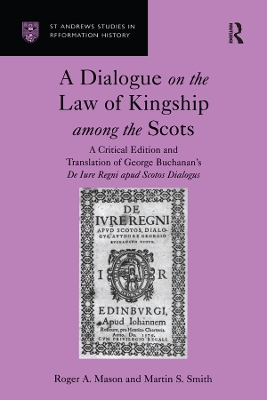St Andrews Studies in Reformation History
1 total work
A Dialogue on the Law of Kingship among the Scots
by Roger A. Mason and Martin S. Smith
Published 19 March 2004
George Buchanan (1506-82) was one of the most distinguished humanists of the Northern European Renaissance. Hailed by his contemporaries as the greatest Latin poet of his age, he is chiefly remembered today as a radical political theorist whose Dialogus, first published in Edinburgh in 1579, justified the deposition of Mary, Queen of Scots in 1567 on the basis of a theory of popular sovereignty, which vested in the people the right to resist, depose and kill tyrannical monarchs. Dedicated to his pupil James VI, whose violent reaction against his tutor's ideas led him to develop his own views on the divine right of kings, Buchanan's work nevertheless proved immensely influential both in Britain and on the Continent, making a notable contribution to the debates over the nature and location of sovereignty which would finally bear fruit in the writings of John Locke. This new edition, featuring facing-page Latin text and English translation, is accompanied by extensive notes and commentary on Buchanan's classical and contemporary sources and a detailed introduction that examines the development of Buchanan's political thought, the context in which the Dialogus was written and published, and an extended analysis of the text itself.
